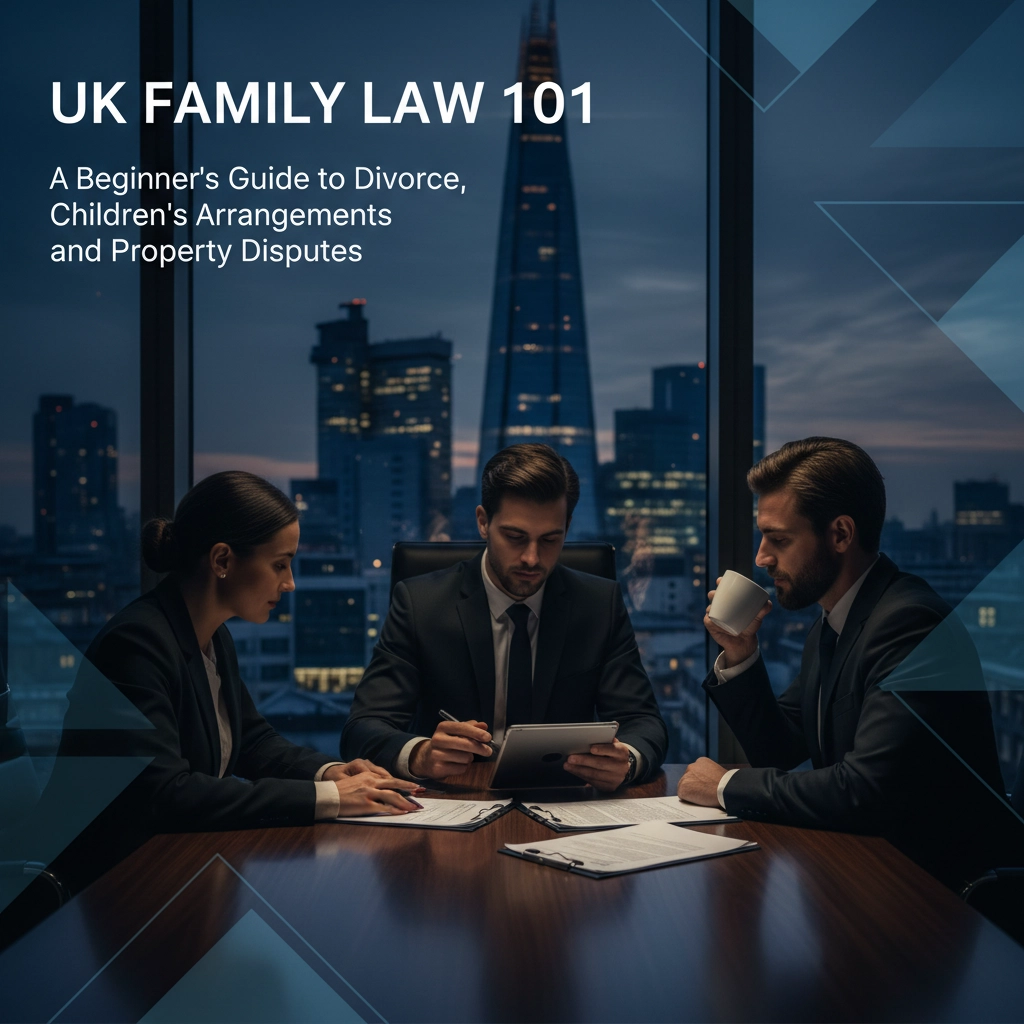For many homebuyers, the property process in England and Wales can feel like navigating a maze where more than 25 percent of deals fall through before completion. Understanding each major step helps you avoid stress and costly surprises. Whether you are making your first offer or preparing for legal checks, this guide brings you clear insights and essential actions that make your path to ownership much smoother.
Table of Contents
- 1. Initial Offer And Acceptance Process
- 2. Appointing A Conveyancer Or Solicitor
- 3. Conducting Legal Searches And Checks
- 4. Reviewing And Exchanging Contracts
- 5. Arranging Deposit And Mortgage Completion
- 6. Final Completion And Transfer Of Ownership
- 7. Post-Completion Tasks And Registration
Quick Summary
| Takeaway | Explanation |
|---|---|
| 1. Offers are negotiable and non-binding | Both buyers and sellers can negotiate offers without any financial penalties until contracts are exchanged. |
| 2. Choose a qualified conveyancer or solicitor | Select a professional with property expertise to ensure a smooth transaction and legal oversight. |
| 3. Conduct thorough legal searches | Essential searches reveal potential risks affecting property value and future plans before purchase. |
| 4. Review contracts carefully before exchange | Ensure all terms, boundaries, and conditions are accurate to avoid costly mistakes in the transaction. |
| 5. Complete necessary post-ownership tasks | Notify relevant authorities and update records to ensure legal protection and proper ownership documentation. |
1. Initial Offer and Acceptance Process
The initial offer and acceptance process marks the exciting first step in your property journey, setting the stage for a potential home purchase. In England and Wales, this stage is uniquely flexible, allowing both buyers and sellers significant room for negotiation.
When you find a property you love, you’ll make an offer through the estate agent, which represents your proposed purchase price. The seller can then choose to accept, reject, or negotiate further. Importantly, according to House of Owners Association, this initial agreement is “subject to contract” – meaning it is not legally binding at this point.
Key Points to Remember:
- Offers can be negotiated multiple times
- Either party can withdraw without financial penalty during this stage
- The agreement remains informal until contracts are formally exchanged
This stage requires strategic thinking. Research the local property market, understand comparable property values, and be prepared to demonstrate your financial readiness. Sellers prefer buyers who can prove their ability to complete the purchase, so having mortgage agreements or proof of funds can strengthen your position.
As outlined by the UK Parliament Commons Library, the non binding nature of this stage provides flexibility for both parties, allowing you to conduct necessary property investigations and financial assessments before making a final commitment.
2. Appointing a Conveyancer or Solicitor
Choosing the right legal professional to handle your property transaction is a critical step that can make or break your entire home buying experience. A conveyancer or solicitor acts as your legal navigator through the complex terrain of property transfer, ensuring all technical and legal requirements are meticulously managed.
What You Need to Know:
- Conveyancers specialise exclusively in property transactions
- Solicitors offer broader legal expertise with property law capabilities
- Professional selection impacts transaction speed and smoothness
When selecting your legal representative, prioritise professionals who demonstrate transparent communication and proven expertise in residential property transfers. Look for credentials such as membership in the Law Society or Council for Licensed Conveyancers, which indicate professional standards and reliability.
Practical Selection Strategies:
- Request detailed quotes from multiple professionals
- Check their estimated completion timeframes
- Review their online reviews and client testimonials
- Confirm their experience with similar property types
Understand that your chosen professional will manage critical tasks like conducting property searches, reviewing contracts, handling financial transfers, and ensuring legal compliance. Their role extends far beyond paperwork they are your strategic partner in navigating potential legal complexities.
Consider asking potential conveyancers or solicitors specific questions about their process, communication style, and typical transaction timelines. A proactive approach during selection can significantly reduce stress and potential complications in your property journey.
3. Conducting Legal Searches and Checks
Legal searches and checks represent your critical defensive strategy in property purchasing, functioning like a comprehensive investigation that reveals potential hidden risks before you commit to buying. According to the UK Parliament Commons Library, these searches uncover essential details that could significantly impact your property investment.
Types of Essential Searches:
- Local authority searches
- Environmental searches
- Planning restriction investigations
- Drainage and water searches
- Land registry checks
Your conveyancer will conduct these detailed investigations to protect your interests. These searches reveal crucial information such as planned road developments near your property, potential flood risks, environmental hazards, or existing planning permissions that might affect the property’s value or your future plans.
What Searches Reveal:
- Potential structural issues
- Upcoming local infrastructure projects
- Environmental contamination risks
- Historical land use problems
- Restricted development possibilities
As recommended by The Advisory, treat these searches as your financial and legal safety net. They might seem like an additional expense, but they can save you thousands by revealing potential problems before you complete the purchase. Some risks uncovered could include unexpected flood zones, historical mining activity, or planned infrastructure that could dramatically impact property value.
Prepare to invest time and approximately £250 £500 in comprehensive searches. Your conveyancer will guide you through each search type, helping you understand the potential implications. Remember: thorough research now prevents costly surprises later.
4. Reviewing and Exchanging Contracts
Reviewing and exchanging contracts represents the critical moment when your property transaction transforms from a potential agreement to a legally binding commitment. According to the UK Parliament Commons Library, this stage is where both parties solidify their understanding and agreement of all transaction terms.
Key Contract Review Components:
- Property boundaries and exact ownership details
- Purchase price and payment terms
- Included fixtures and fittings
- Agreed completion date
- Special conditions or contingencies
Your solicitor plays a pivotal role during this stage, meticulously reviewing every clause to protect your interests. As The Advisory explains, contract exchange is the point of no return where both buyer and seller become legally committed to the transaction.
Practical Preparation Steps:
- Ensure all financial arrangements are confirmed
- Double check all property details are accurate
- Prepare funds for deposit
- Confirm your completion date
- Have buildings insurance in place
Once contracts are exchanged, you are legally obligated to complete the purchase. This means backing out will result in significant financial penalties typically around 10% of the property value. Typically, completion occurs between one to four weeks after contract exchange, giving you time to prepare for moving.
Remember that contract exchange is a momentous occasion requiring careful attention to detail. Your solicitor will guide you through each step, ensuring you understand every aspect of the agreement before making this substantial commitment.
5. Arranging Deposit and Mortgage Completion
Arranging your deposit and finalising mortgage completion represents the financial cornerstone of your property purchase. This stage transforms your property dream from possibility to reality, requiring strategic financial planning and precise coordination between multiple parties.
Deposit Requirements:
- Typically 5% to 10% of property value
- Must be verified funds from legitimate sources
- Usually transferred directly to solicitor’s account
- Funds must be traceable for anti money laundering checks
Your mortgage lender will conduct a final valuation of the property to confirm it matches the agreed purchase price. This step protects both you and the lender by ensuring the property represents a sound investment. Prepare comprehensive documentation including proof of income, bank statements, and identification to streamline this process.
Financial Preparation Checklist:
- Confirm exact mortgage offer details
- Verify deposit amount
- Prepare funds transfer instructions
- Double check all financial documentation
- Understand your monthly repayment structure
Most first time buyers underestimate the complexity of this stage. Beyond the deposit, you will need to budget for additional costs such as stamp duty, solicitor fees, and potential survey expenses. Consider creating a comprehensive spreadsheet tracking all potential expenditures to avoid unexpected financial strain.
Remember that lenders will scrutinise your financial history meticulously. Maintain stable employment, avoid opening new credit lines, and ensure your credit report is accurate in the months leading up to mortgage completion. Your financial discipline directly impacts your mortgage approval and interest rates.
6. Final Completion and Transfer of Ownership
Final completion represents the pinnacle of your property purchasing journey where legal ownership officially transfers from seller to buyer. According to the UK Parliament Commons Library, this stage involves precise financial and legal transactions that definitively seal your property acquisition.
Key Completion Day Activities:
- Transfer of remaining purchase funds
- Exchange of property keys
- Official registration of new ownership
- Settlement of final solicitor fees
- Updating land registry records
As recommended by The Advisory, completion typically occurs around midday when your solicitor transfers the full purchase amount to the seller’s solicitor. Once funds are confirmed, the seller’s legal representative will authorise release of property keys, marking your official transition to homeownership.
Critical Preparation Steps:
- Confirm exact transfer time with solicitor
- Ensure funds are readily available
- Arrange moving logistics
- Prepare for immediate property insurance
- Update address with relevant institutions
Prepare for a potentially stressful but exciting day. Multiple parties including estate agents, solicitors, and mortgage lenders will be coordinating simultaneously. Have a fully charged mobile phone, keep communication lines open, and maintain a folder with all relevant documentation.
Remember that completion day is more than a transaction it is the moment your property dreams become reality. Stay calm, organised, and ready to embrace your new home.
7. Post-Completion Tasks and Registration
Post-completion tasks represent the final administrative phase of your property purchase, transforming your legal ownership from theoretical to officially documented. According to the UK Parliament Commons Library, your solicitor plays a crucial role in managing these essential post purchase responsibilities.
Key Post-Completion Responsibilities:
- Register new ownership with Land Registry
- Pay Stamp Duty Land Tax
- Update property deed documents
- Transfer utility accounts
- Notify relevant government departments
Your solicitor will handle the critical task of updating the Land Registry, which officially records you as the new property owner. As The Advisory recommends, this process typically takes between two to three weeks and ensures your legal rights are formally recognised.
Practical Notification Checklist:
- Inform council for council tax purposes
- Update electoral register
- Transfer energy and utility accounts
- Redirect postal services
- Update home insurance policy
- Notify bank and other financial institutions
Financial planning remains crucial during this stage. Budget for Stamp Duty Land Tax which varies depending on property value and whether youre a first time buyer. Most solicitors will calculate and submit this payment on your behalf, ensuring compliance with HM Revenue and Customs regulations.
Remember that thorough post completion administration protects your legal interests and ensures a smooth transition into your new property. Stay organised and maintain open communication with your solicitor to navigate this final stage effectively.
Below is a comprehensive table summarising the key steps and considerations in the property purchasing process as discussed in the article.
| Main Step | Key Points & Actions | Benefits/Outcomes |
|---|---|---|
| Initial Offer and Acceptance | Offers are non-binding; negotiate price via estate agent; have proof of funds. | Flexible negotiations; no penalty for withdrawal. |
| Appointing a Conveyancer/Solicitor | Choose based on expertise and communication; ask for quotes. | Smooth transaction; legal compliance ensured. |
| Conducting Legal Searches | Conduct essential searches; understand potential risks. | Identification of hidden issues; financial and legal safety net. |
| Reviewing and Exchanging Contracts | Review contract details; prepare deposit and insurance. | Legally binding agreement; commitment from both parties. |
| Arranging Deposit and Mortgage Completion | Verify deposit; prepare documentation for lender review. | Secure financial agreement; mortgage confirmed. |
| Final Completion/Transfer of Ownership | Transfer funds; exchange keys; register ownership. | Official transition to homeownership; records updated. |
| Post-Completion Tasks | Register ownership; update utilities and official documents. | Legal rights protected; smooth transition into new home. |
Master Conveyancing With Confidence and Clarity
Navigating the seven key stages of conveyancing can feel overwhelming and complex. Buyers often worry about hidden property risks, legal jargon, and the financial commitments that come with exchanging contracts or arranging mortgage completion. Understanding terms like “subject to contract” and the importance of thorough legal searches is crucial but not always straightforward. You deserve clear guidance that helps you anticipate challenges and secure your investment with confidence.

At KefiHub, we provide UK professionals like you with practical insights and expert advice designed to simplify these critical property processes. From choosing the right solicitor to managing post-completion tasks, our platform breaks down each stage into manageable steps so you can avoid costly surprises and make informed decisions now. Don’t leave such an important journey to chance. Visit KefiHub today and empower your conveyancing experience with trusted knowledge and real-world support. Start your journey with confidence and control by exploring our expert content on conveyancing essentials and property advice.
Frequently Asked Questions
What is the initial offer and acceptance process in conveyancing?
The initial offer and acceptance process involves making a formal purchase offer on a property, which can be negotiated by both the buyer and seller. Ensure to research comparable property values to make a competitive offer that strengthens your position.
How do I choose a conveyancer or solicitor for my property transaction?
Select a conveyancer or solicitor by evaluating their experience in property transactions and checking for transparent communication. Request detailed quotes from multiple professionals and review their client testimonials to find the best fit for your needs.
What legal searches and checks are essential during the conveyancing process?
Essential legal searches include local authority searches, environmental checks, and land registry investigations, which help identify potential issues with the property. Engage your conveyancer to conduct these searches, which typically cost between £250 and £500, to avoid unpleasant surprises later.
What are the key components of contract review before exchanging contracts?
Key components include reviewing property boundaries, purchase price, included fixtures, and any special conditions. Prepare by confirming all financial arrangements and ensuring accurate property details to streamline the review process before exchanging contracts.
How should I prepare for the deposit and mortgage completion stage?
Prepare for deposit and mortgage completion by confirming the deposit amount, ensuring you have traceable funds ready for the solicitor’s account. Create a financial checklist that includes additional costs such as stamp duty and solicitor fees to manage your budget effectively.
What tasks need to be completed after the property completion?
Post-completion tasks involve registering ownership with the Land Registry, paying Stamp Duty, and updating utility accounts. Organize a checklist of notifications and registrations to ensure a smooth transition into your new property.
Recommended
- Conveyancing Archives – Kefihub
- London Archives – Kefihub
- Berkshire Archives – Kefihub
- Directories Archive – Kefihub
























